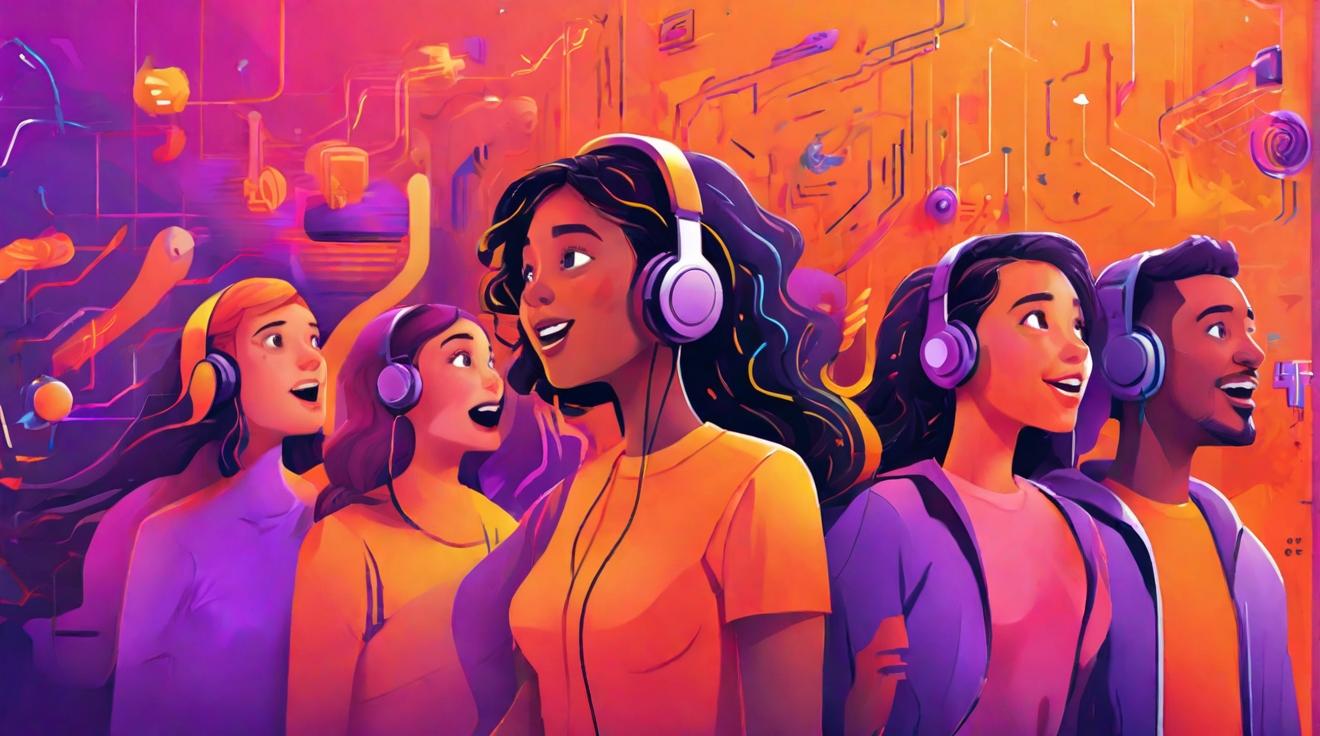OpenAI Unveils Pioneering Voice Engine Technology with Ethical Safeguards
In a significant leap from the 1978's Speak & Spell toy, the realm of voice synthesis has embraced the future with OpenAI's latest announcement of the Voice Engine. This state-of-the-art text-to-speech AI model is at the forefront of synthetic voice creation, displaying the power to craft highly realistic voices, or even clone existing ones from mere 15-second audio samples.
However, OpenAI treads cautiously, withholding a broad release of this potent technology due to the ethical tightrope it walks on. The promise of Voice Engine extends beyond mere novelty; it aims to revolutionize reading assistance, offering natural-sounding voices to aid users. Additionally, it seeks to enhance global reach for creators by translating content with preserved native accents, provide personalized speech options for non-verbal individuals, and assist those recovering their voice after speech-impairing conditions.
Yet, the shadow of misuse looms large. From phone scams to election campaign robocalls, the replication of voices without consent has already sown seeds of concern. Researchers warn of the added risk of voice-cloning technology potentially cracking voice authentication for bank accounts.
To mitigate risks, OpenAI is proactively weaving safety nets. Partnering exclusively with a select group of companies, it mandates compliance with strict terms geared towards ethical usage, including the prohibition of impersonation without consent. A unique watermark embedded into every voice sample stands as a testament to OpenAI's dedication to traceability and origin verification.
The company boldly suggests that as voice-cloning technology evolves, so too must societal norms and security measures. Recommendations include moving away from voice-based authentication for banking, ramping up public education on AI's potential for deceit, and developing robust techniques to trace audio origins. Moreover, future iterations may include mechanisms for verifying informed consent from speakers and compiling lists of prohibited voices to clone.
Introduced in late 2022, Voice Engine represents not just a technological marvel but a beacon of ethical AI development. As this "small" AI model continues to evolve, its journey is marked by cautious optimism, balancing innovation with integrity. Remaining a limited release, OpenAI's Voice Engine lights a path forward, heralding a future where synthetic voices can enrich lives, unfettered by the specter of misuse.
Analyst comment
Positive news: OpenAI unveils pioneering Voice Engine technology with ethical safeguards, aiming to revolutionize reading assistance, provide personalized speech options, and assist those with speech-impairing conditions. The company actively addresses concerns by partnering exclusively with select companies, mandating ethical usage and traceability. However, risks of misuse exist, which OpenAI acknowledges and suggests evolving societal norms and security measures. Market prediction: With the introduction of Voice Engine, OpenAI advances ethical AI development, paving the way for a future where synthetic voices enrich lives while mitigating misuse.













